If you’re pregnant or planning to become pregnant, you may have questions about food cravings, such as “when do pregnancy cravings start any why?” or “is it normal to be craving certain foods during pregnancy?”. As a registered dietitian, I teach you everything you need to know about pregnancy cravings in this post.
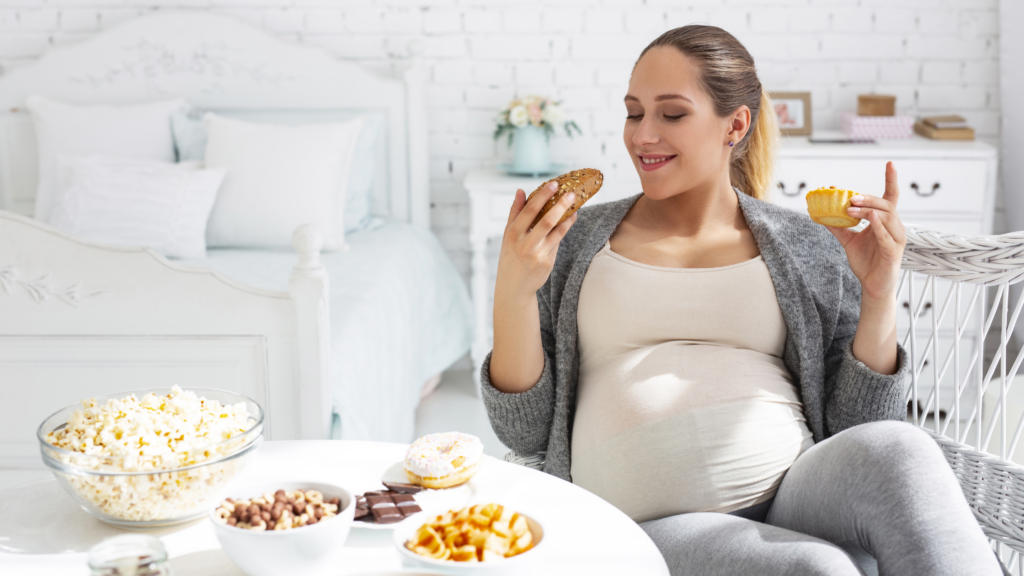
Pregnancy is a life-changing, unique journey that impacts women on so many levels–physically, mentally and emotionally–and in so many different ways. Nutrition during pregnancy is also unique, in that your energy, and nutrient requirements change throughout gestation as your body works hard to grow a whole new person! One thing that is usually fairly standard is experiencing some sort of food craving (or cravings) during pregnancy.
If you’re pregnant or planning to become pregnant, you may have questions about food cravings because you’ve heard about them through friends or on social media. Know that everyone is different, and the occurrence of food cravings (or not) has no implication on the health or success of your pregnancy. You may have questions like “why do cravings happen”, or “when do food cravings start?” or “can pregnancy cravings be harmful?”.
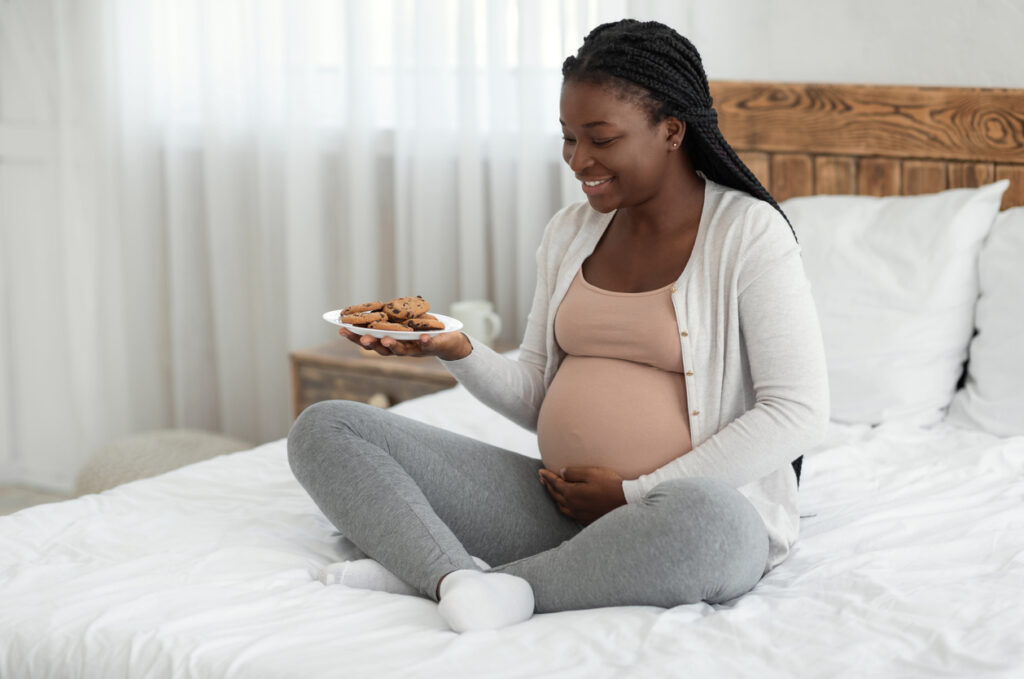
You’re in the right place!
As a dietitian mom, I am passionate about providing new moms (and moms-to-be) with evidence-based information around prenatal nutrition. This blog will reveal everything you need to know about pregnancy cravings, answering common questions that I get around this topic! If you feel you would benefit from one-on-one prenatal nutrition care, please do not hesitate to book in with one of our registered dietitians at The Centre for Family Nutrition.
What are pregnancy cravings?
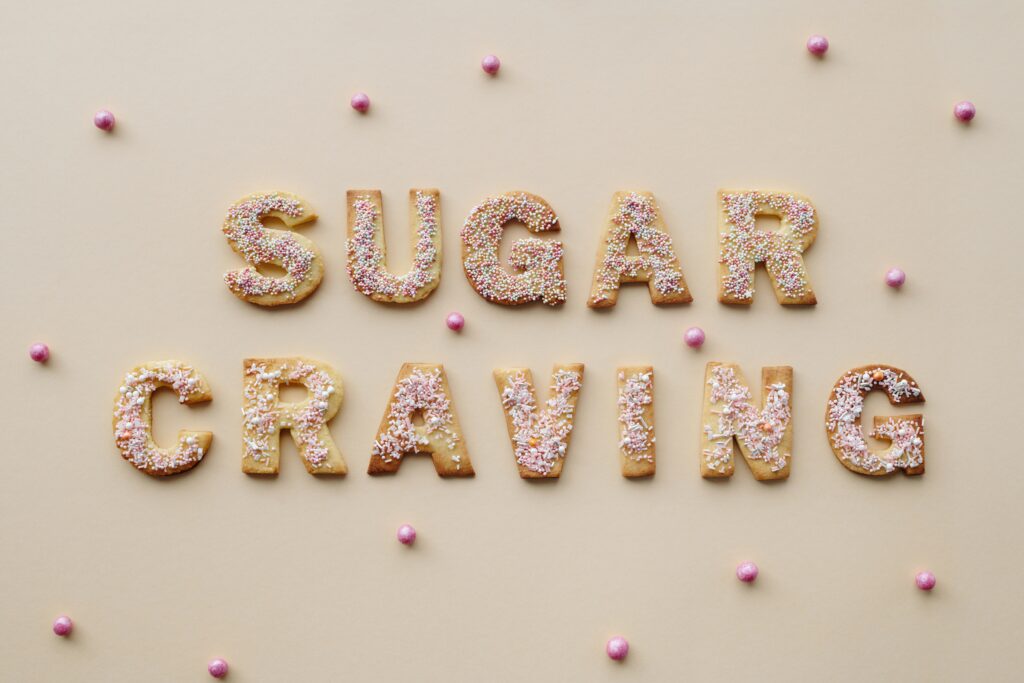
Cravings are strong urges for a specific food or food type that are different from the typical feelings of hunger. Women who have pregnancy cravings also tend to have experienced food cravings outside of pregnancy too. For example, premenstrual food cravings are commonly experienced by women as well. But food cravings aren’t gender-specific, as men also experience them! Interestingly, men more often crave savory, whereas women more often report sweet cravings.
When do pregnancy cravings start?
Food cravings during pregnancy typically emerge at the end of the first trimester, hit their peak in the second trimester and then subside during the third trimester. Research shows that there is a significant drop in cravings after baby is delivered. It is important to know that while most women do experience cravings at some point in their pregnancy, it is also normal not to experience any! On the other hand, you may experience cravings your entire pregnancy. Everyone is different in what they experience, and that is normal and to be expected!
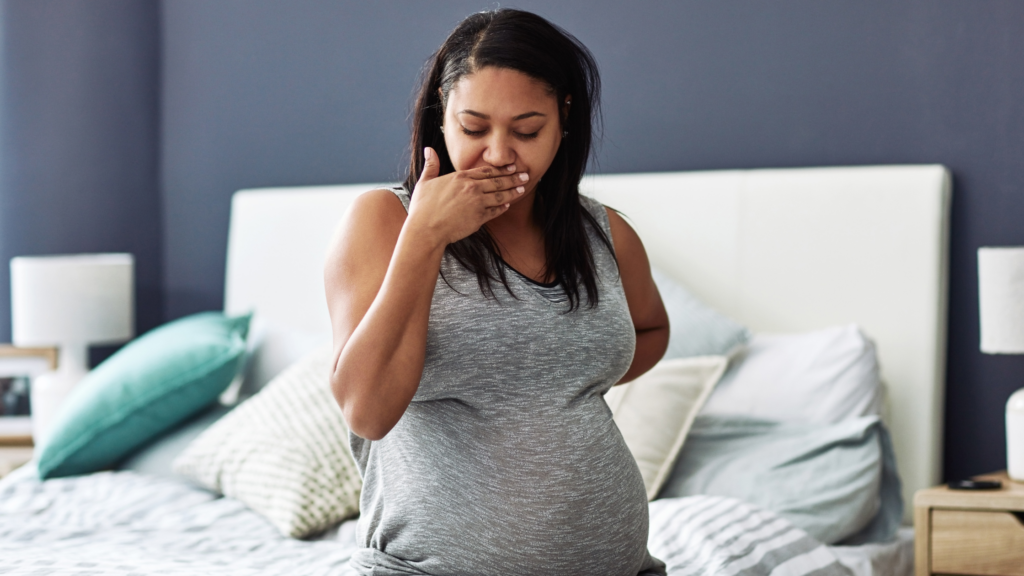
What I personally remember post-delivery, is the overwhelming relief from my pregnancy nausea and food aversions! This is a great example of how every pregnancy is different. Most often, food aversions and nausea peak at the end of the first trimester and decrease from there. But sometimes these symptoms last the entire pregnancy (such as in my case), while others don’t experience them at all! Even though I had intense food aversions throughout my pregnancy, I also experienced strong cravings for pastries at the very end of my first pregnancy. However, with my second pregnancy I experienced powerful cravings for fried chicken right near the start! As you can see cravings can change between a person’s pregnancies as well. So, try not to be alarmed if you don’t experience cravings like your friend, or don’t have cravings like you did with your previous pregnancy! Every person, and every pregnancy is unique.
What causes pregnancy cravings?
First of all, when you’re pregnant, your body requires much more energy in order to grow and nourish an infant. During pregnancy, your blood volume increases by half, you grow a placenta, and the size of the uterus expands. Naturally we can assume that these high growth demands likely result in a higher appetite during pregnancy. But why do some women also experience intense cravings for specific foods?
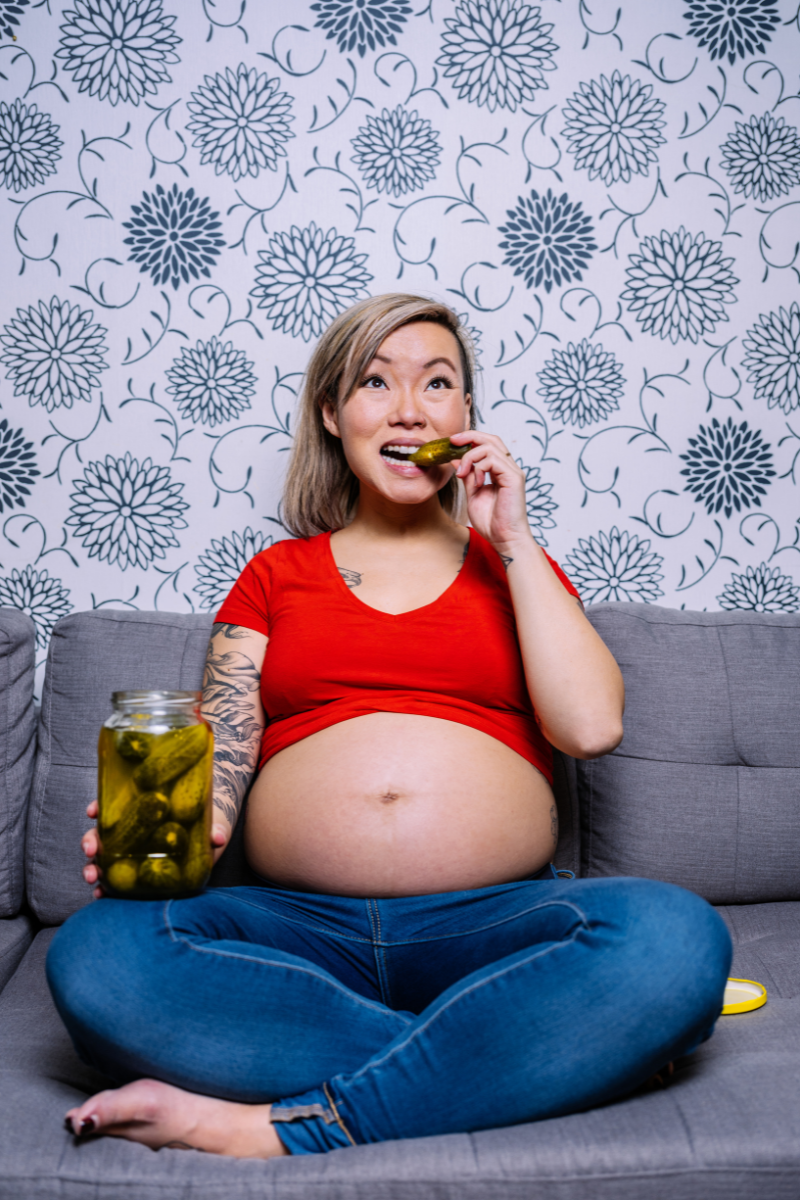
There is more and more interest around what causes food cravings during pregnancy and the mechanisms behind these cravings, but unfortunately, there is a relatively large gap in research on this topic. We just don’t have a ton of evidence-based information explaining food cravings in pregnancy. However, there are some proposed mechanisms that may help to explain food cravings in pregnancy, and indirect links from research explaining why they might happen.
Hormonal changes and pregnancy cravings
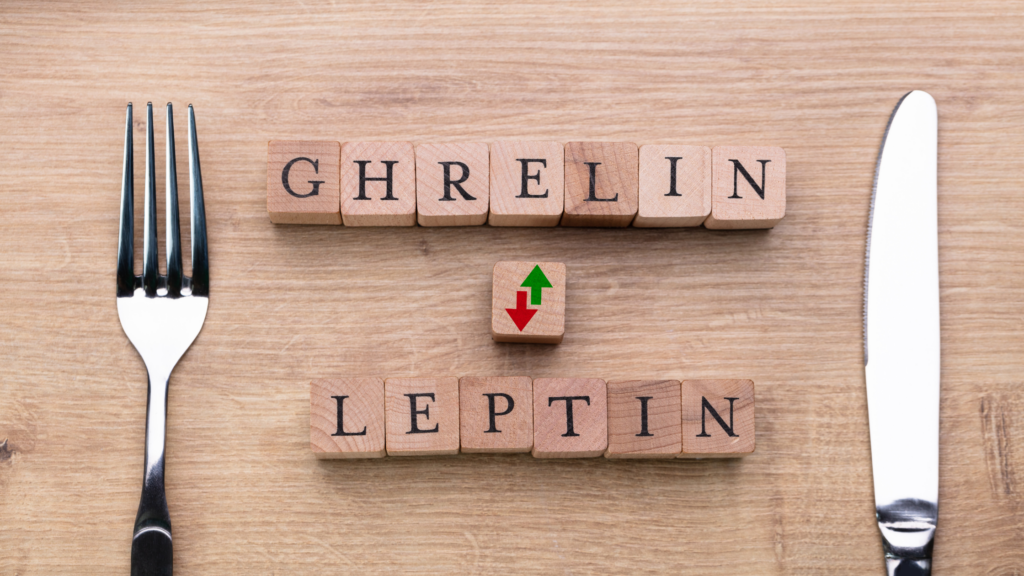
Right from the start of pregnancy, there is a cascade of hormonal changes that occur and to spur the growth and development of an eventual 6–10-pound baby! While supporting things like placental growth and thickening of the uterine lining, some of these hormones may also contribute to craving levels. For example, it is well established that the hormone leptin (a hormone that makes you feel full) is more abundant during pregnancy. In animal studies, even though there is more leptin in a pregnant rat’s body, the rat becomes resistant to this hormone, leading to a higher appetite in the pregnant rat! Although this is yet to be confirmed in humans, it is possible that this leptin resistance may be linked to higher appetite, and food cravings during pregnancy.
Hormonal changes in pregnancy also affect taste and smell. I definitely remember not being able to stand the smell of certain fragrances/perfumes, coffee, and specific odors coming from the kitchen when food was being cooked. There is a strong theory that certain tastes and smells may have a protective effect during pregnancy by preventing an expectant mother from eating something toxic. There is still a need for more high-quality research to confirm this theory.
Nutrient demand and pregnancy cravings
It is not a surprise that nutrient requirements are higher during pregnancy, but did you know that your need for certain nutrients like iron and folic acid are close to double? It would make sense that your body would naturally start to crave foods rich in these nutrients to support the healthy growth of your baby, right? Sadly, it’s not that simple.
Evidence shows that the most common food cravings during pregnancy are sweet foods, high-fat foods, and fast foods, which aren’t usually rich sources of the essential micronutrients. Interestingly, meat and other protein rich foods were among the most common aversions experienced during pregnancy. This further discredits the theory that food cravings serve to fill in nutrient gaps that occur during pregnancy (hello, iron!). There is definitely more research needed to explore this proposed theory.
Cultural and psychological factors and pregnancy cravings
The impact of someone’s culture and psychological health both have huge impacts on what we eat, why we eat, and how much we eat. The theory that cultural norms and perceptions around food and pregnancy may be a determinant in pregnancy food cravings doesn’t seem so far-fetched! For example, in North America, women tend to crave sweet foods, including chocolate around their time of the month, while women in Japan crave rice instead. This leads to the implication that craving specific foods in pregnancy may also be highly influenced by food culture. Pretty interesting, hey?!
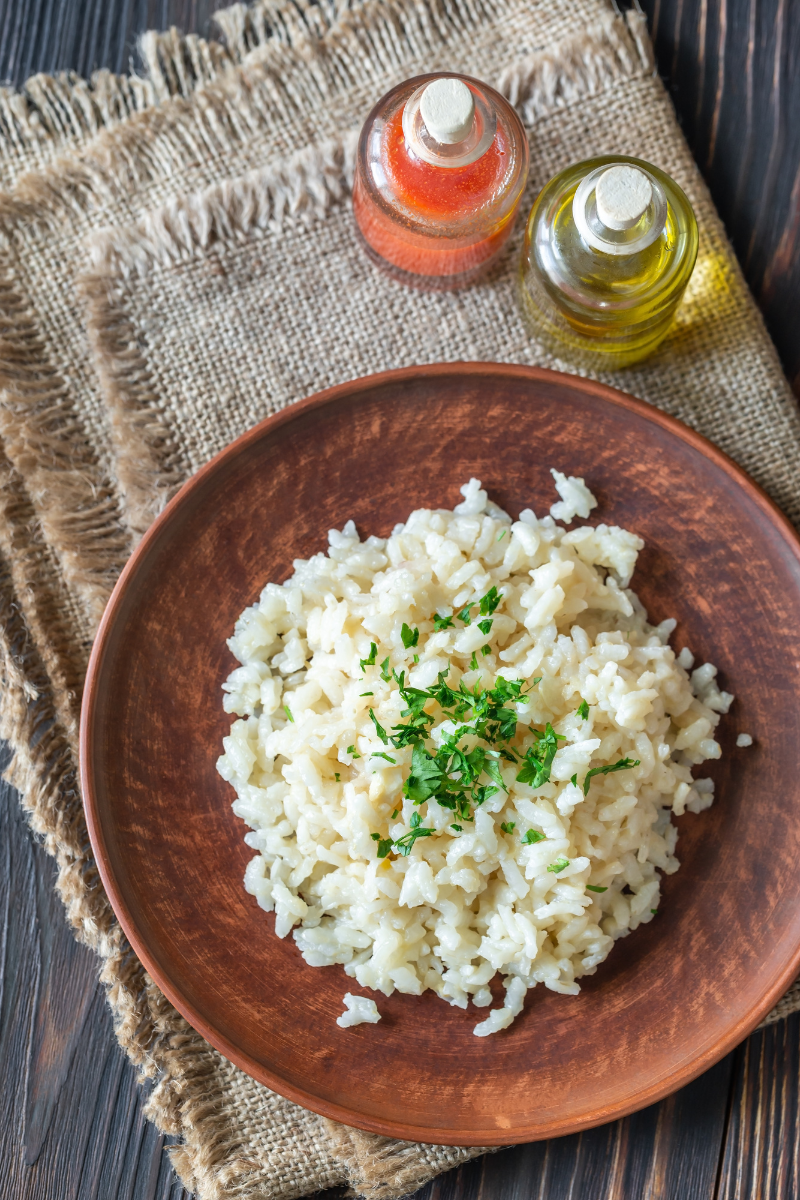
Of course, psychological well-being and one’s relationship with food likely plays a role in pregnancy cravings as well. Placing foods on a hierarchy or putting foods into “good” or “bad” categories or subscribing to the idea that there are “forbidden” foods, has shown to heighten craving levels and “out of control” feelings around certain foods. Along the same vein, when someone is experiencing high stress or in a depressed mood, it is not uncommon to use “forbidden” foods as a coping mechanism to feel better in the short-term. When these emotions start to reappear, associated food cravings come up as the favored emotional coping strategy.
Let’s face it, pregnancy comes with many overwhelming changes. Your body changes, clothes stop fitting, and you may feel exhausted, tired and nauseous. All of this, combined with the hormonal changes during pregnancy, is a recipe for weird and wonderful food cravings (and some aversions as well).
If you tended to emotionally eat or cope with food before pregnancy, it wouldn’t be surprising if these tendencies intensified during pregnancy. Please, don’t judge yourself if you eat emotionally, or feel guilty around eating certain foods (pregnant or not). This is something that is important to recognize, and reflect on. The first step is to recognize that it is possible to reject food rules and embrace the idea of eating with unconditional permission. But that’s a whole other blog and you can read more about intuitive eating here.
What are the most common pregnancy cravings?
The most common pregnancy cravings include sweet foods (candy, desserts, chocolate, ice-cream etc.), dairy, fruits and fruit juice, starchy carbohydrates (pizza and chips), fast food, and animal proteins (steak, eggs, and chicken). Research suggest that it is most common to experience savory cravings in the beginning of pregnancy and/or closer to the end, while sweet cravings reach peak intensity during the second trimester. Even before I knew I was pregnant with my daughter, I remember having an intense late-night craving for a spicy chicken sandwich from KFC–I even made my husband go out and get it for me! Later in my pregnancies, chocolate milk or ramen noodles were at top of my list.
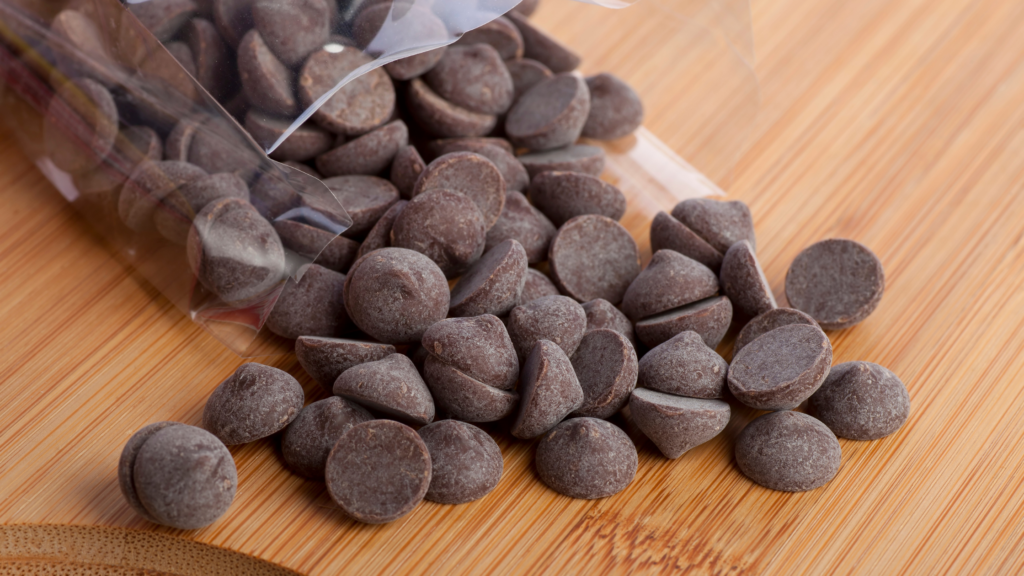
I had friends who craved fruit, or vegetables and hummus, while others craved candy and chocolate. See how every pregnancy is different, and what you crave may be influenced by a variety of factors (like mentioned above)? Leaning into your cravings will help to take the intensity down a few notches, and allow you to focus on other areas of your prenatal care at the same time! I discuss this concept more below.
What should I be eating during pregnancy?
If this is your first pregnancy, you might be wondering what the best foods are to eat for a healthy pregnancy. When it comes down to it, what your body needs is enough of the right nutrients, which you can get from a variety of foods! What’s most important is that you aim to eat a variety of nourishing foods, including lean sources of protein, calcium-rich foods, whole grains, fruits, veggies and satisfying fats (including sources of omega 3 fats). Alongside eating a variety of foods, it is important to take a prenatal multivitamin to top up on essential nutrients that are in higher demand during pregnancy such as folate, iron, calcium and vitamin D.
Sometimes eating well during pregnancy can seem impossible, especially if you are experiencing severe nausea, vomiting, food aversions, and/or cravings for not-so-nutritious foods. If you are struggling to eat enough food, or find that your food choices have become extremely limited by pregnancy nausea and food aversions, don’t hesitate to reach out to a prenatal dietitian for one-on-one support.
What foods are unsafe to eat during pregnancy?
Most foods are safe to enjoy without worry while pregnant. However, there are some foods that, if consumed, may cause harm to a developing baby or pregnant mom. When you become pregnant your immune system is weaker than normal. For this reason, you (and your unborn baby) are at higher risk of food poisoning which can lead to severe illness and can even cause miscarriage. Foods that are raw or undercooked (raw meat, sushi, runny egg yolks), unpasteurized dairy and juices, cured meats and unwashed produce all may contain harmful bacteria that can result in food poisoning. You can read more about unsafe foods during pregnancy here.
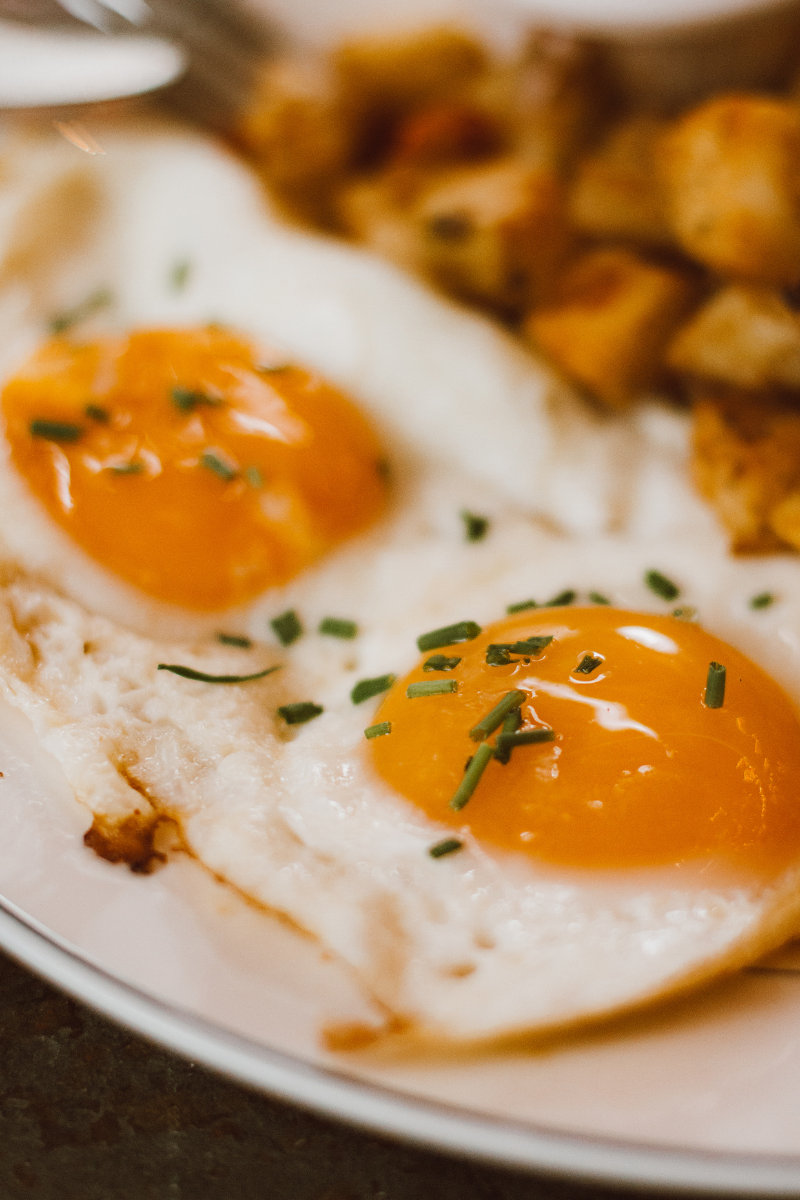
Now don’t panic if you have consumed these higher risk foods during pregnancy in the past! Although the risk of foodborne illness is higher with these foods, it is still relatively low (and you and your baby are totally fine, phew!). Regardless, it is best to play it safe and skip these higher risk foods when you are pregnant.
How should I manage my pregnancy cravings?
Intense food cravings can feel overwhelming and cause emotional distress or feelings of being “out of control” (whether you are pregnant or not). These feelings stem from diet culture, where certain foods are considered “off limits” or “unhealthy” to consume. The issue with this message in pregnancy is that it creates internal self-deprecation, where if you eat the piece of chocolate cake instead of the green salad, you feel like you are a “bad mom” or are harming your growing child (which totally NOT true!).
A qualitative study on pregnant women and their experience with cravings found that women who coped by accepting and satisfying their cravings, reported better mental and emotional status. Those who reported resisting food cravings experienced emotional distress, eventually resulting in eating more of the craved food item, followed by feelings of guilt. Accepting the food cravings and regularly choosing to satisfy them, actually helped to prevent feelings of guilt and loss of control around food.
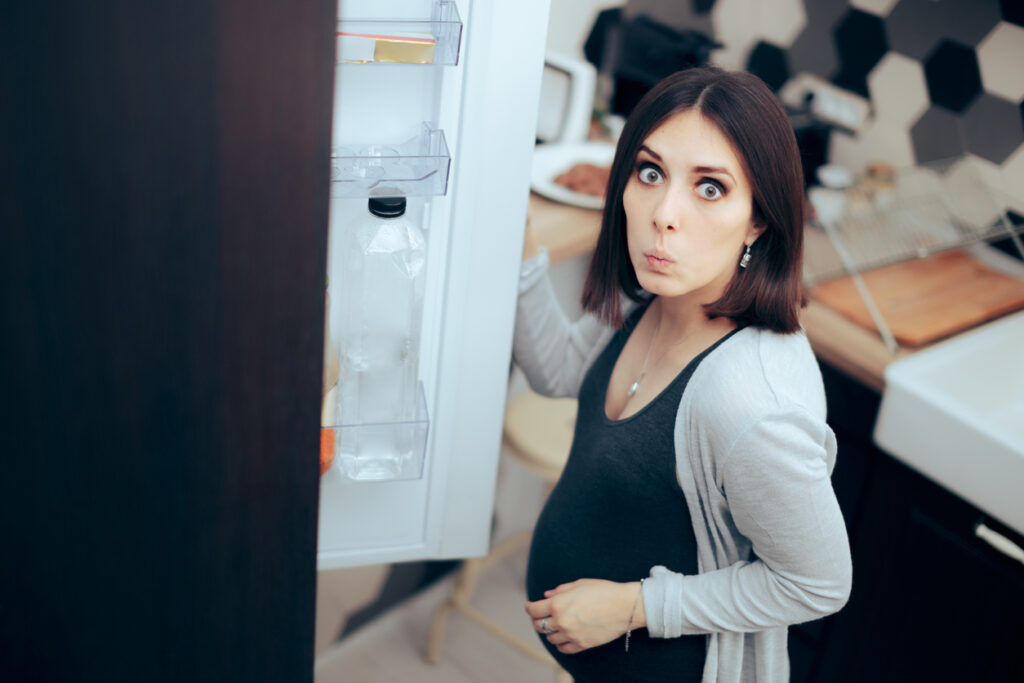
I recommend leaning into your pregnancy food cravings and savoring every bite of that piece of chocolate cake. You may be surprised at how satisfied you feel when you focus on the enjoyment of food versus the harmful food labels that diet culture has created.
Are pregnancy cravings unhealthy for myself or my baby?
For the most part, no. Food cravings themselves are not unhealthy for you or your baby. In fact, it is better if you lean into your cravings, satisfying them with kindness and intuition. The issue that can arise is if one type of food starts to displace a whole other food groups like fruits and vegetables, whole grains, protein and satisfying fats. Like mentioned above, it is important to get a variety of nutritious whole foods during pregnancy to nourish your body and your developing baby. Indulging daily in food cravings is no problem at all, as long as you are also able to enjoy varied meals and snacks throughout the day too!
There is another exception to this: Craving non-food items. These cravings may pose a health concern. Pica is a type of eating disorder where you crave and eat non-food items such as clay, dirt, ice, paper, chalk, etc. Pica has many causes, but often it can be triggered by pregnancy-related nutrient deficiencies in iron, zinc or b vitamins. Eating non-nutritive items can make you feel full, displacing food that is needed to nourish your body and your growing baby. This type of eating disorder can lead to other complications such as stomach irritation, nausea, vomiting, weight loss and infection. If you find you are starting to crave non-food items during your pregnancy, it is important that you book in with your health care provider for an assessment.
There is a need for more high-quality human studies to help uncover the reasons and mechanisms behind food cravings in pregnancy. What we do know is that pregnancy cravings are multifaceted and complex. There are many determinants at play, including biological, hormonal, psychological, and cultural drivers. Leaning into your cravings without judgement, while being thoughtful about your food choices during pregnancy is the way to go!
References:
- Orloff N, Holmes J. 2014. Pickles and ice cream! Food cravings in pregnancy: hypotheses, preliminary evidence, and directions for future research. Frontiers in Psychology 5:1076. http://www.ncbi.nlm.nih.gov/pmc/articles/PMC4172095/
- Faas MM, Melgert BN, de Vos P. A Brief Review on How Pregnancy and Sex Hormones Interfere with Taste and Food Intake. Chemosens Percept. 2010 Mar;3(1):51-56. https://www.ncbi.nlm.nih.gov/pmc/articles/PMC2844535/
- Blau LE, Lipsky LM, Dempster KW, Eisenberg Colman MH, Siega-Riz AM, Faith MS, Nansel TR. Women’s Experience and Understanding of Food Cravings in Pregnancy: A Qualitative Study in Women Receiving Prenatal Care at the University of North Carolina-Chapel Hill. J Acad Nutr Diet. 2020 May;120(5):815-824. https://www.ncbi.nlm.nih.gov/pmc/articles/PMC7186144/
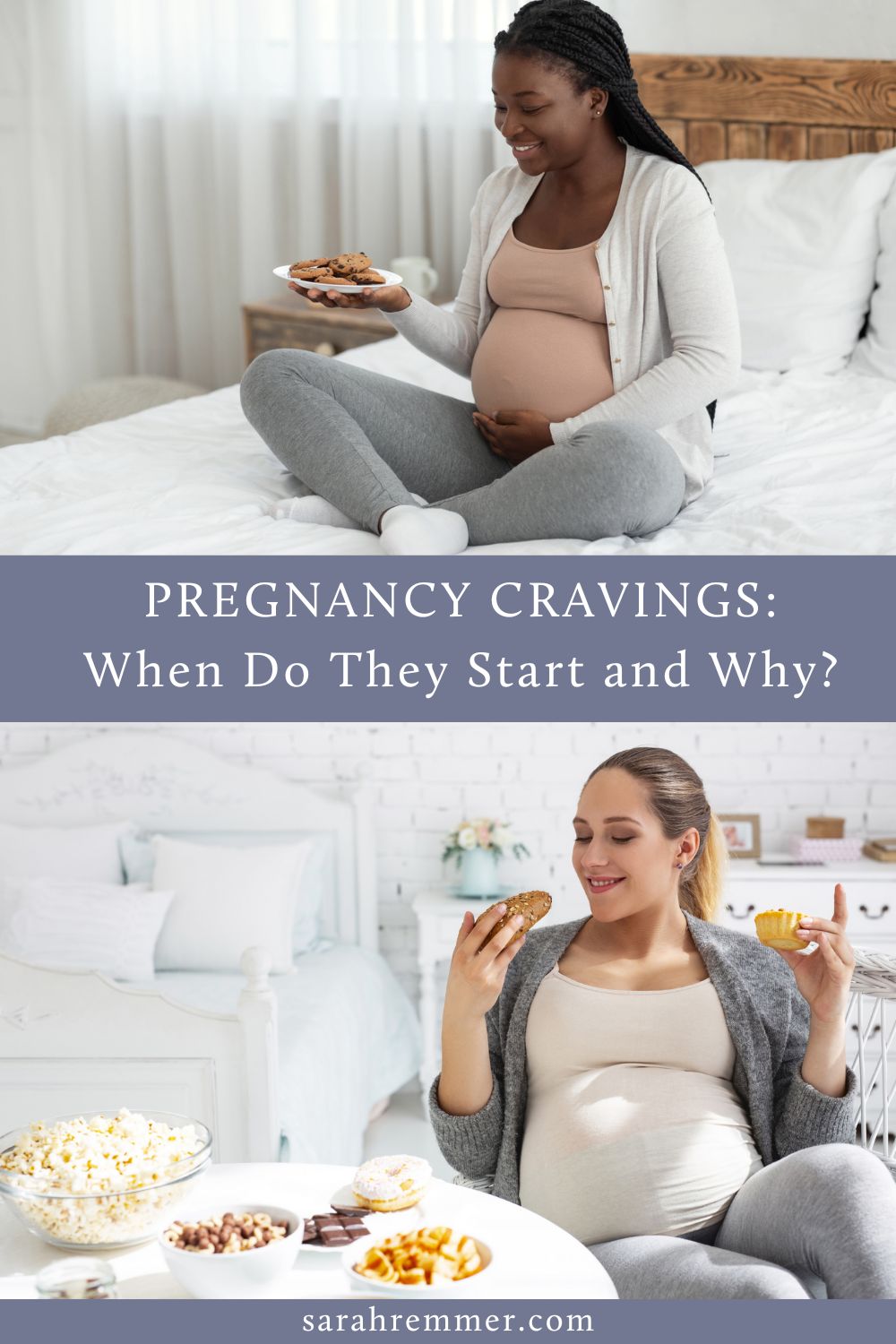
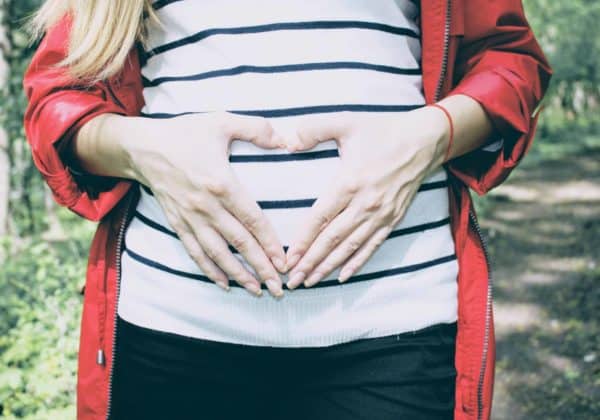

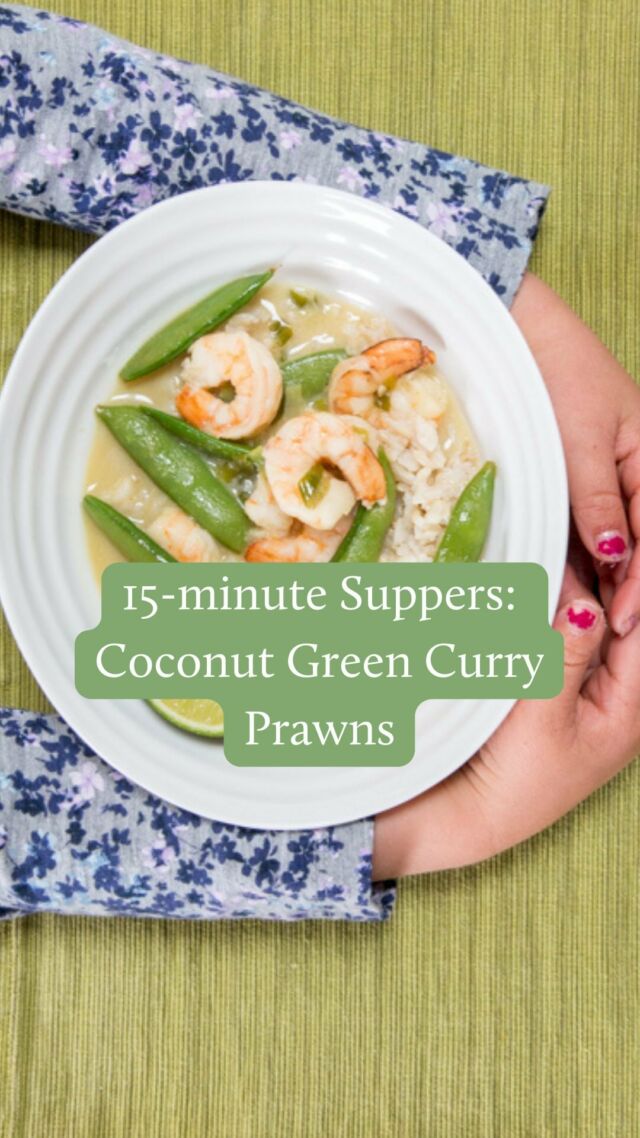
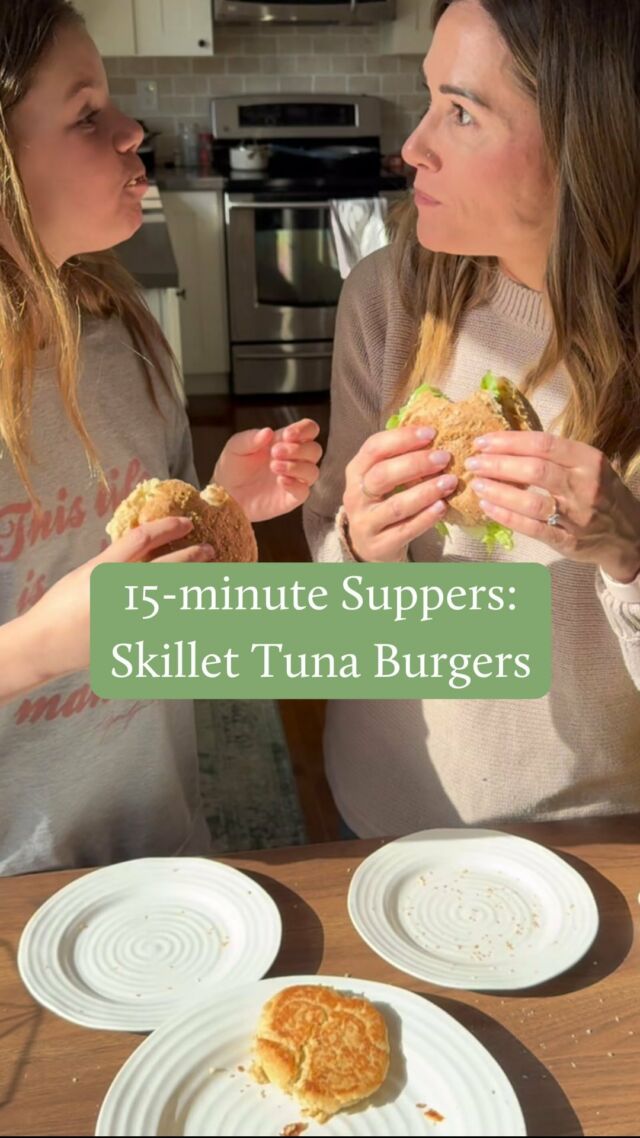
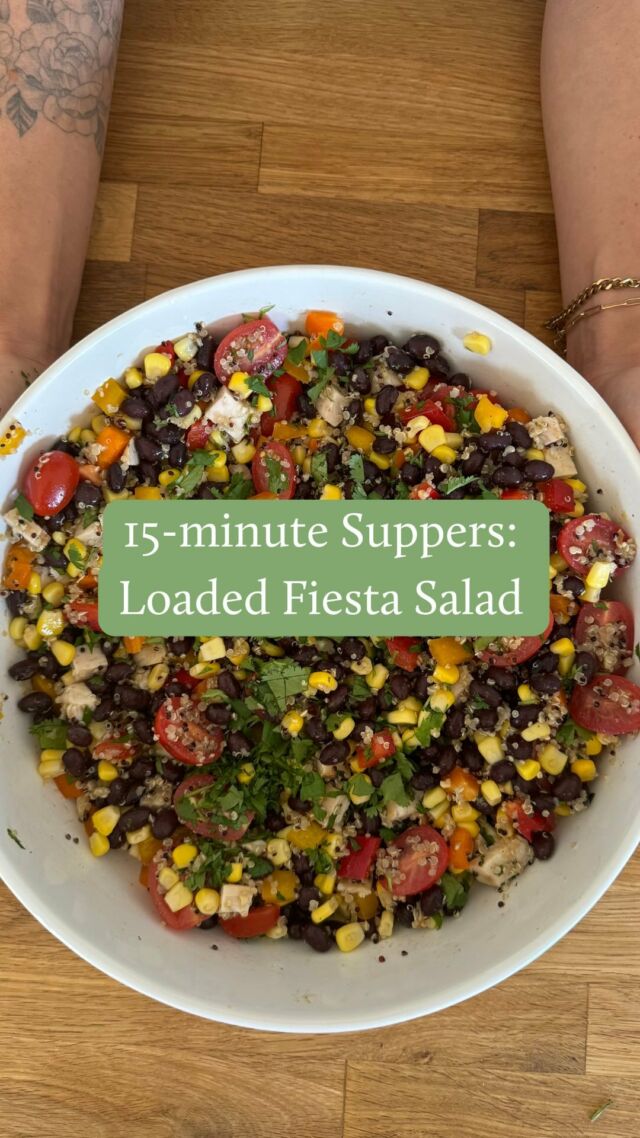


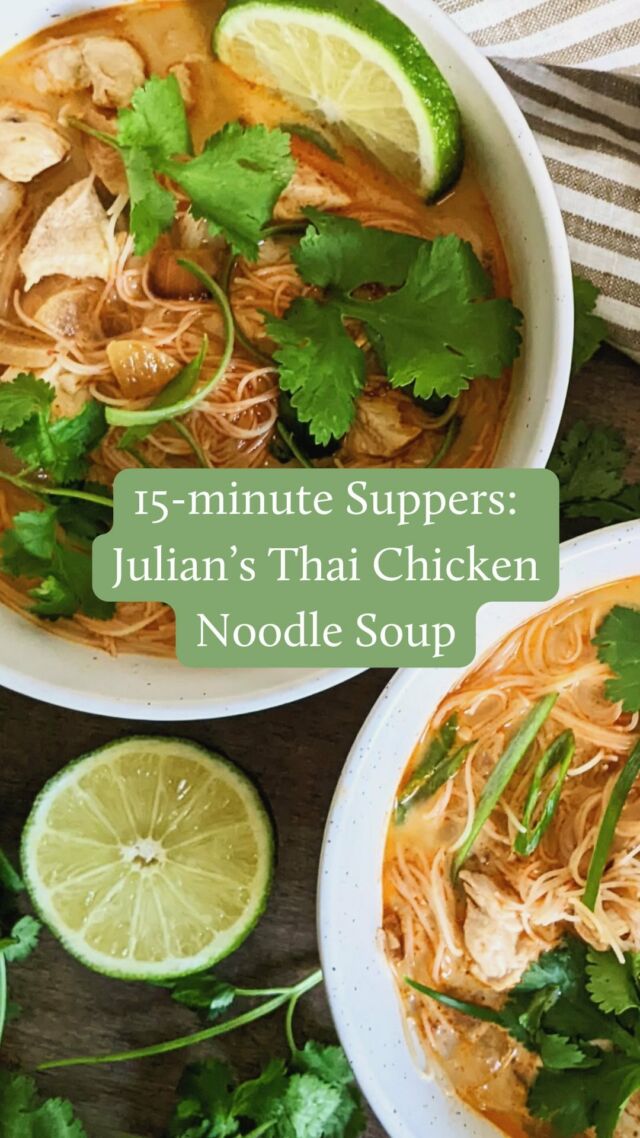
Leave a Comment